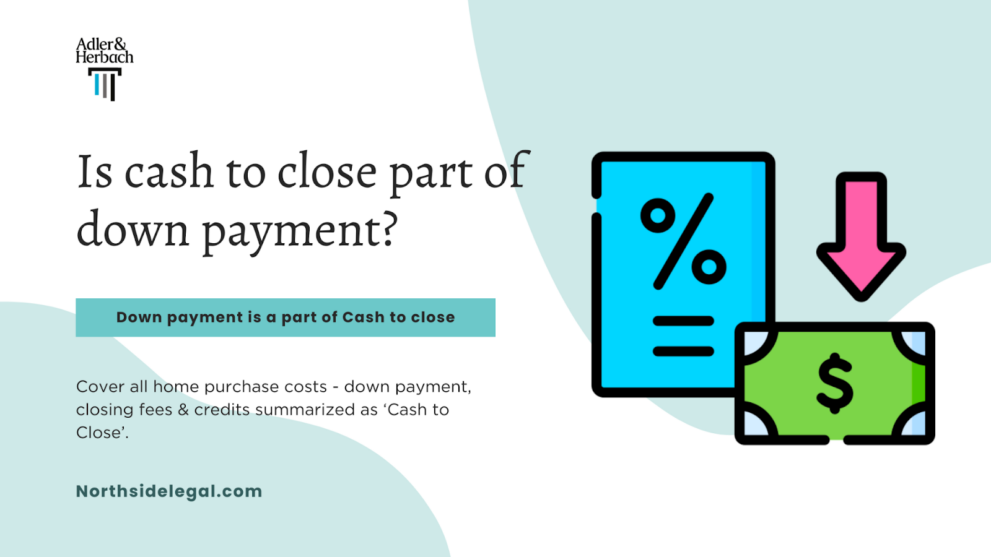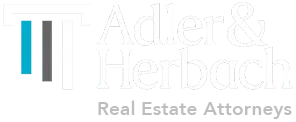When going through the home buying process and applying for a mortgage, buyers need to factor in both their required down payment as well as total “cash to close” needs identified by their lender. But this begs the question – is the cash to close just part of the down payment, or does it represent additional costs?
Is cash to close part of down payment?
Down payment and cash to close differ in real estate transactions. The down payment, a percentage of the purchase price, is included in the cash to close. However, cash to close also covers closing costs and considers any credits. Essentially, your down payment contributes to your total cash-to-close amount.

Down Payment vs Cash to Close
Here’s a breakdown of how they differ:
Down Payment:
- The amount paid in cash towards the purchase price (ie. the amount not being financed).
- Down payment percentage is determined by the loan program.
- Goes toward equity in the home.
Cash to Close:
- Includes the down payment.
- Also includes all closing costs.
- Accounts for credits from lender/seller and previously deposited earnest money.
- Total buyer funds needed on closing day.
So in simpler terms:
The down payment is part of your cash to close, but cash to close also includes additional closing-related expenses beyond the down payment funds.
Here’s an example on a $300,000 purchase:
- Down payment: $30,000 (10% of purchase price)
- Closing costs: $8,000
- Seller credit: $2,000
- Cash to close: $36,000 (less any earnest money you already paid)
This buyer’s cash to close includes the $30,000 down payment plus the $8,000 in closing costs, minus a $2,000 seller credit. The down payment portion equates to $30,000 of the total $36,000 cash to close amount.
Why does cash to close encapsulate more than the down payment?
A few key reasons:
1. Down payment just covers a portion of costs
On most loans, even putting 20% down, the down payment doesn’t cover the full expense of purchasing a home. Cash to close fills the gap.
2. Closing costs also required
Lender and title fees must be paid to close on the home. Cash to close includes these costs.
3. Credits can lower total funds needed
Buyer credits from the seller or lender, lowering the total cash required, are factored into cash to close.
4. All due on closing day
Down payment, costs, and credits must be reconciled by closing, hence the single cash to close amount.
5. Ensures sufficient funds to purchase
Cash to close encapsulates everything needed to officially buy the home and close the deal.
Can you pay only the down payment at closing?
No, the down payment alone is not sufficient to close. All closing costs and credits must also be accounted for on closing day. Coming up short on the full cash to close risks delaying or cancelling the transaction.
Also learn more about
Tips for managing down payment and cash to close
If you’re ready to buy a home, a few tips can help you master down payment planning and cash to close:
- Understand your down payment obligations for the loan program you choose. Conventional loans often need at least 20% down to get the best rate.
- Ask lenders for a detailed cash to close estimate early in the process to understand all costs.
- Shop around with multiple lenders to compare cash to close amounts and optimize savings.
- Don’t tap retirement accounts before exploring other down payment sources.
- Research down payment assistance programs, or grants, that can help first-time buyers.
- Save early and consistently, before even starting your home search. Sufficient cash to close can take months to accumulate.
- Get clarity on which closing credits you may be eligible for from sellers/lenders.
- Line up gift funds early if using for your down payment, to allow time for your lender to document properly.
- Prioritize paying down other debts ahead of time so you can maximize savings for the down payment and cash needed to close.
The bottom line
While the down payment is a key piece, cash to close encompasses the full scope of funds required to finalize the home purchase. Knowing what goes into these calculations allows you to save, plan, and prepare properly. Your lender and real estate advisor can help clarify any questions around down payments and total cash to close.


